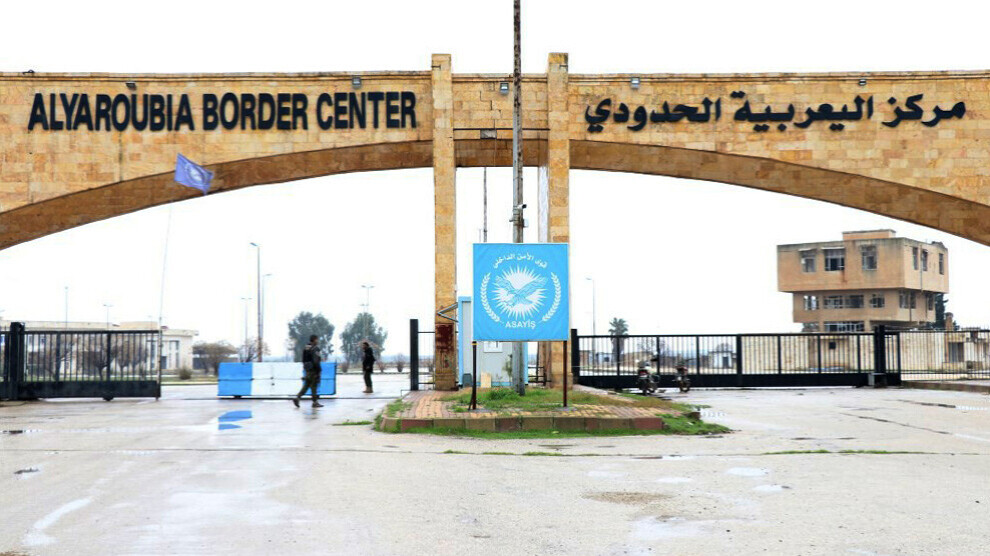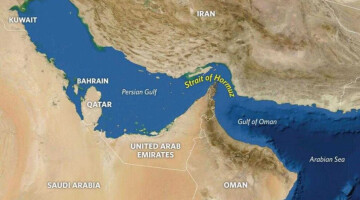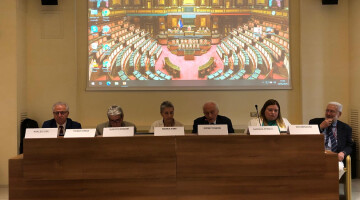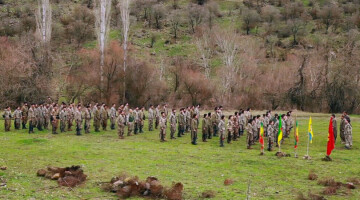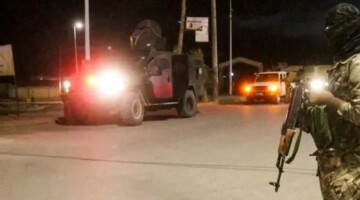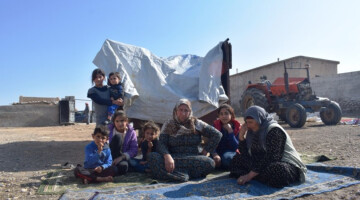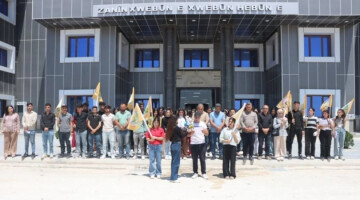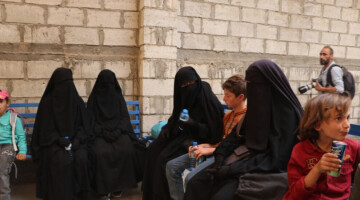The Autonomous Administration of North and East Syria has appealed to the international community and the United Nations (UN) Security Council to reopen the Yarubiyah (ku. Til Koçer) border crossing for cross-border humanitarian aid with immediate effect. The transport of food, medicine and other humanitarian supplies should not depend on political considerations or be used as a weapon, the Autonomous Administration said in a statement.
1.3 million people dependent on aid shipments
More than five million people live in the autonomous areas, which have been ravaged by wars of aggression by Turkey, a multiple embargo and terror against the civilian population. More than a quarter of the population (1,300,000 million) is made up of internally displaced persons who rely on humanitarian aid. But a "humanitarian catastrophe" has been looming for some time, and the Autonomous Administration has had to issue repeated urgent warnings about it - to no avail. Yarubiyah was the only border crossing through which official UN aid could reach the northeast of the country via Iraq independently of the Syrian regime. Since the crossing was closed a year and a half ago, U.N. aid has passed through Damascus, arriving in the northeast with delays, if at all. While more than 70 percent of aid supplies are missing, only a handful of medical supplies have reached the region, but only through alternative routes, even though health facilities face shortages and have little medicine and equipment needed to combat the Corona pandemic and other diseases.
Cross-border aid
From July 2014 until early 2020, a U.N. Security Council resolution allowed humanitarian aid to enter Syria through four border crossings. It was reviewed and renewed annually to maintain humanitarian assistance in areas not under regime control. In 2019 and 2020, Russia and China vetoed the renewal of the resolution, which included the previously agreed-upon border crossings, and removed three of them from the list. As a result, only the Bab al-Hawa border crossing currently remains in the current resolution as a formal humanitarian border crossing into Syria, through which aid supplies from Turkey reach Idlib province. On July 10, the resolution will expire unless it is renewed. Russia, however, has already indicated that it will not agree to an extension. Instead, Moscow demands that aid should be delivered across the conflict lines inside Syria to strengthen the government's sovereignty over the entire country.
Important lifeline for northern and eastern Syria
"The Yarubiyah border crossing is an important lifeline for northern and eastern Syria. For us, separating them is tantamount to aiding and abetting the siege policy against the people of our region," the Autonomous Administration criticized. With the crushing of the territorial rule of ISIS in 2019, the autonomous areas have been expanded. The increase in population and the hosting of tens of thousands of displaced people and ISIS supporters in reception camps -Hol Camp is the largest, currently housing over 60,000 people - for whom their home countries are not taking responsibility has created a massive supply shortage. To be sure, the northeastern Syrian authorities are trying their best to get out of this predicament. But there are simply too many people in need of humanitarian assistance.
Responsibility towards the peoples
North-East Syria has borne the greatest burden in the fight against ISIS. For this very reason, it should no longer be starved, the Autonomous Administration demanded, saying, "We call on the international community to support efforts for the reopening of the Yarubiyah border crossing. This would be a first step in correcting the course of global responsibility towards our peoples."
RELATED NEWS:

